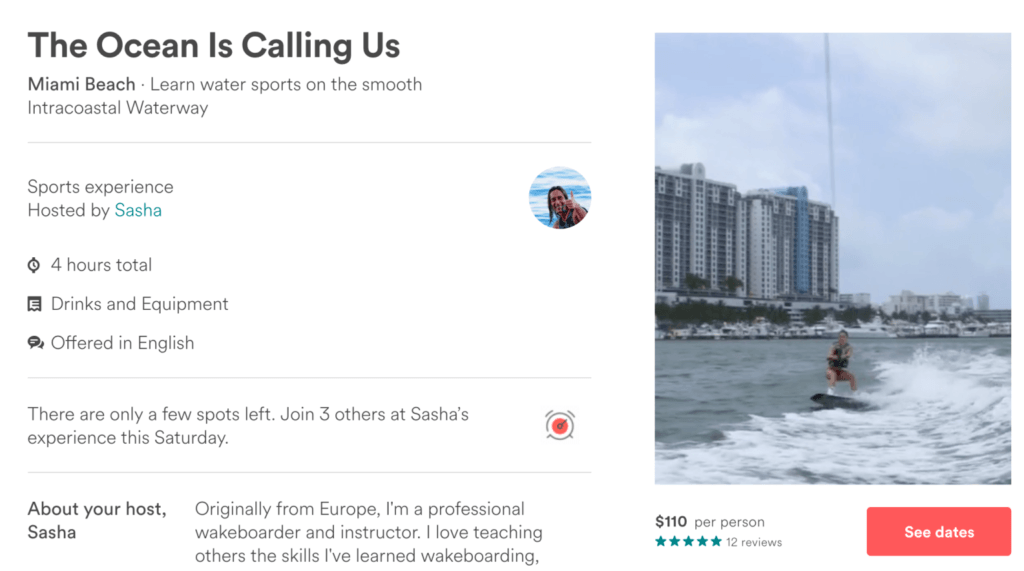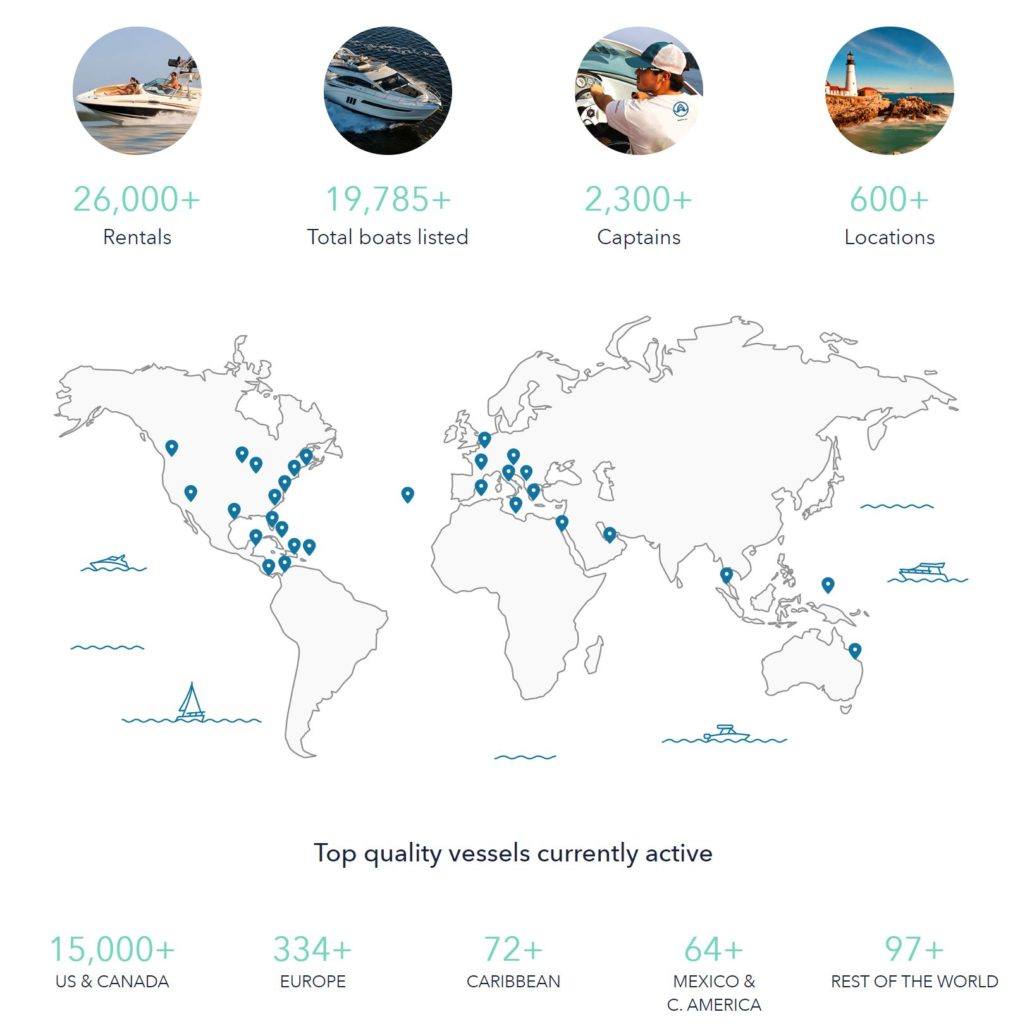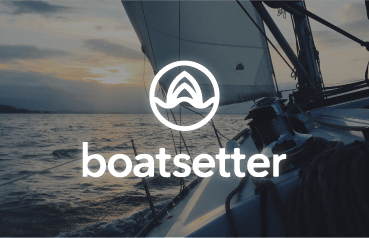Boatsetter: Democratizing The Sailing Experience

Defined as the 'Airbnb of yachts', Boatsetter gets rid of the boat ownership barrier and offers a reliable and seamless way to enjoy a unique day out.
Creating value
Why sailing should be exclusive? Why not just have a unique day-out experience at your fingertips? Boatsetter creates value for renters offering an affordable, reliable, varied and seamless way of accessing a boat experience in more than 600 locations around the world. Compared to incumbent options (travel agencies or local website listings), Boatsetter offers an affordable alternative by leveraging the economies of scale of strong cross-sided network effects between boat owners and renters. In order to attract a large volume of renters, Boatsetter provides differentiated features.
The first of them is reliability. For renters to have a safe experience, Boatsetter not only offers captains (3rd party or owners) as a feature in case they can’t operate a boat, but also an insurance package that covers renters, owners and captains.
The second feature is variety. Boatsetter has a wide portfolio of regions and boat options, allowing renters to choose among differentiated alternatives and find their best experience (from pet-friendly boats to catamarans for bachelorette parties).
Finally, the decision-making process is straight-forwardly conducted through the app in a couple of minutes. No pre-bookings and seamless payments: search, connect and set sail. Unsurprisingly, most of Boatsetter’s renters are Millennials who have not had similar experiences before: a clear untapped market.
But why owning a boat should be so expensive then? Most of the boat owners face high maintenance and storage costs for an asset that has a 1% utilization rate. They need a profitable, reliable and autonomous way to rent their boat. Boatsetter creates value for owners by granting them wide access to new revenue opportunities, which they can evaluate through a set of profit estimation tools that the company offers to owners considering entering the platform. Once the proprietor accesses Boatsetter, she has the autonomy to choose the conditions of the rental, such as price, availability period or any other personalized requirements. Finally, reliability is offered through the above-mentioned insurance, the trusted pool of 3rd party captains and the company’s mediation between the 3 sides of the platform.
Capturing the value of a sustainable business model
In order to capture this value, the company follows a fee-based revenue model with fees going from 15 to 35%. Despite imposing a higher fee than its competitors (GetMyBoat), Boatsetter has been able to grow its volume by 350% during the last year through different M&A’s and by following an investment-heavy approach to developing the local networks of owners and thus locking-in the supply-side of the business. Even though this aspect could hinder the scalability of the model, the localization efforts are worth enough: supply is the critical piece to control in a platform with an untapped demand. And the scalability efforts are more reasonable in this case since Boatsetter is a highly sustainable business.
First, the strong cross-side network effects above-mentioned and the reviews system direct network-effects, particularly important for a market of renters who are new to these experiences, are a key pillar for the sustainability of the business.
Secondly, the network structure also plays an important role to sustain Boatsetter’s advantage. Even though the supply-side is local, the revenue growth is mainly driven by remote travelers, with local seasonal customers playing a nonnegligible role but not as important as the one travelers play. So, Boatsetter could be defined as a global network with a small local clusterization that gives the company a reasonable defense against new entrants.
Regarding disintermediation, Boatsetter has an advantage compared to other platform businesses: the frequency of rentals made by the same user are particularly low since most of the revenue comes from remote travelers. As the owner-renter relationship doesn’t go beyond a couple of interactions, the incentives to bypass the platform are limited since there are few opportunities to develop trust between the parties.
Even though it is vulnerable to multi-homing, Boatsetter could reduce its exposure by offering additional services to owners, for whom maintenance and storage costs are a hassle. The company could explore ways to leverage its scale and customer-oriented product development to establish partnerships with maintenance and storage providers and also offer owners a set of basic analytical tools to manage their assets.
Finally, as Boatsetter can’t bridge to other networks on its own, it will be critical for the company to double down on its partnerships with most of the online travel agencies and Airbnb, ideally aiming for exclusivity agreements. Even though the business’ sustainability is vulnerable to the vertical integration of these players, Boatsetter could leverage its large base of owners to weaken the new entrants in the space.

So, as strong network effects, low disintermediation risks and a global-local network allow Boatsetter to mitigate the action of new entrants, value-added features to lower supply-side multi-homing and an extension of its current partnerships could strengthen even more the company’s sustainability and set even calmer waters to sail through.
Sources
- Peer-to-peer boat rental marketplace Boatsetter raises $10M as it looks to grow globally – TechCrunch, (August 2019)
https://techcrunch.com/2019/08/14/peer-to-peer-boat-rental-marketplace-boatsetter-raises-10m-as-it-looks-to-grow-globally/
- Peer-To-Peer Platform Boatsetter Lets You Instantly Rent A Luxury Yacht In 600+ Locations Around The World – Forbes, (January 2020)
https://www.forbes.com/sites/taylorboozan/2020/01/07/peer-to-peer-platform-boatsetter-lets-you-instantly-rent-a-luxury-yacht-in-600-locations-around-the-world/#380fb438d8a6
- ‘Airbnb for boats’ startup Boatsetter buys competitor Boatbound – TechCrunch, (August 2017)
https://techcrunch.com/2017/08/17/peer-to-peer-boat-rental/
- The founder of the ‘Airbnb of yachts’ says the service is attracting millennial women: here’s why – Business Insider, (November 2019)
https://www.businessinsider.com/why-boatsetter-primarily-attracts-women-and-millennials-jaclyn-baumgarten-2019-11
- Boatsetter Website, (March 2020)
https://www.boatsetter.com/
- EquityNet – Boatsetter profile, (March 2020)
https://www.equitynet.com/c/boatsetter






Very interesting post! I am definitely going to check out Boatsetter on my next vacation. I think that in order for Boatsetter to continue to scale and defend against potential entrants, they really need to double-down on providing complementary services to the boat owners to keep them on the platform and reduce risk of multi-homing. For example, since ports are quite centralized in certain areas, they could set up facilities or local contractor relationships to provide cleaning, fueling, maintenance, etc… services for the boats in between rentals. This would reduce the friction for owners both at initial sign-up and during their on-going use of the platform.
Great post!
Thanks for the great read! The partnership with Airbnb seems like a solid way to drive customers to boat experiences, particularly those who had no specific interest in boat-related activities. As it gets more popular, I am very curious about how the relationship between Boatsetter and Airbnb will evolve – whether Airbnb would start onboarding boat owners and operators itself and thereby “disintermediating” Boatster. Matt’s post above suggesting that Boatsetter provide maintenance services etc. to owners to keep them on the platform seems like a great place to start since it is possibly something Airbnb would not provide.
I agree with this comment. Having exclusive agreements with airbnb etc could disintermediate boatster as we saw with amazon and xfire but perhaps long term agreements would help manage this threat. Creating add-on services for boat owners could help new boat owners but existing owners likely have their own management so another partnership possibility is to use boatster as a way to sell to renters who then become consumers.
Wow, that is interesting! Worth checking out – when the world gets back to normal and we all can travel again!
I agree with Matt above that while this seems like a great idea, the platform needs to incentivize boat-owners in order to keep them on the platform, especially if this seems to be a lucrative business and more competitors come in. To increase the stickiness of boat-owners and to reduce multi-homing, Boatsetter could offer add-on services to the customers (renters) during usage if booked through their platform e.g. free goodies, special offers etc.. This way both sides of the platform are encouraged to stick to this company over other competitors.
Great read! And cool find, didn’t even know this existed. It’s interesting that they’re top-line growth has come mostly from M&A, I’d be interested to know more about their unit economics, because this seems to be a platform business in which the CAC could potentially be extremely high on both sides of the platform.
Love Boatsetter and have used it in the past! I think you identified a few of the issues that are most apparent to me. First repeat usage vs. moving off platform – you mentioned repeat usage is low, which makes the risk of moving off platform low, but I wonder if the repeat usage is low because users are in fact moving off-platform / contacting the boats they’ve used in the past directly? Also, I think a lot of the value / margin of the business comes from repeat usage and limiting the CAC + cost to setup / serve customers – how do you view the long term profitability of Boatsetter (that requires more coordination with captains, owners, pickup, gas, etc.) vs. an Airbnb? Last, I think one of the most interesting parts of Boatsetter is what you mentioned around its ability to cover costs of ownership – I totally agree here and wonder if it makes ownership more likely because people can now afford it by renting out boats OR less likely because people now have access to boats on the few occasions they desire (since you mentioned their only utilized 1% of the time anyway)? Interesting post for sure and great company to use!
Wow… As a customer, I loved the concept! I’ll definitely check Boatsetter for my next vacation! However, from a business perspective I would be very worried about this endeavor. Because creating such a platform seems very simple and straight forward, competition will for sure be intense, either for direct competitors or from other players, such as Airbnb, that could move into this territory. I believe that the company needs to create more differentiation and provide more services as to have a very strong client lock-in. If not, there is a good chance this business will evolve into a cash black hole, competing in terms of pocket size.
Very much needed platform, that can actually help “create” a market vs. simply facilitating transactions. In the article, I liked the perspective on network effects, as well as the thoughts on (1) the low disintermediation risk, given the specific customers provenance i.e. mostly travelers, (2) mitigating multihoming (low) costs, for example by offering services that can simplify the end-to-end experience. I agree setting up partnership with other service providers (e.g. AirBnB) could help expand user base as well as increase entry barriers for other players. Back to the initial point on “creating” a market, it could be interesting to understand what kind of partnerships (and potentially also advertising strategies) can help target the right audience and scale the platform.
Amazing! Definetely worth checking out. I wonder whether they might find as an interesting exit opportunity to be outright bought by Airbnb or a different/large player. Seems like there would also be considerable opportunitites to tie it with further vacation businesses, such as providing crews, transfers, and other activities.